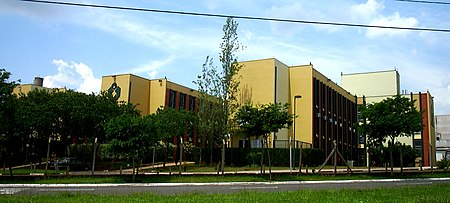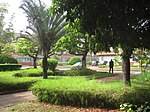University of Campinas School of Medical Sciences

The School of Medical Sciences (Portuguese: Faculdade de Ciências Médicas, FCM) is a college of the State University of Campinas, located in Campinas, São Paulo, Brazil. It offers courses at the undergraduate level in medicine, nursing, pharmacy and speech therapy, as well as courses at graduate and postgraduate level (specialization, master's, doctorate, and medical residency). Affiliated clinical centers are the Clinics Hospital, the Hospital of Sumaré, the Center for Women Integral Health Care (CAISM), the Gastroenterology Center, the Pediatrics Center, the Haemocenter of Campinas, and several others. It has also a nucleus of experimental medical research. The School is considered one of the foremost Brazilian excellence centers in teaching, research and health care services.
Excerpt from the Wikipedia article University of Campinas School of Medical Sciences (License: CC BY-SA 3.0, Authors, Images).University of Campinas School of Medical Sciences
Rua Tessália Vieira de Camargo, Campinas
Geographical coordinates (GPS) Address External links Nearby Places Show on map
Geographical coordinates (GPS)
| Latitude | Longitude |
|---|---|
| N -22.830136111111 ° | E -47.063283333333 ° |
Address
FCM - Faculdade de Ciências Médicas
Rua Tessália Vieira de Camargo 126
13083-888 Campinas
São Paulo, Brazil
Open on Google Maps






